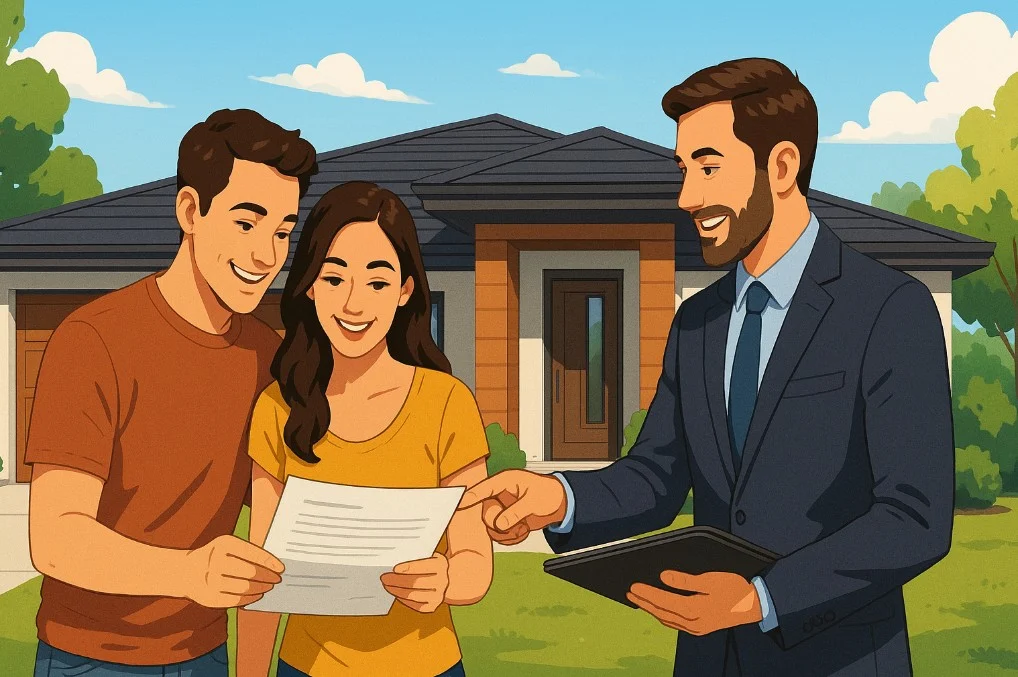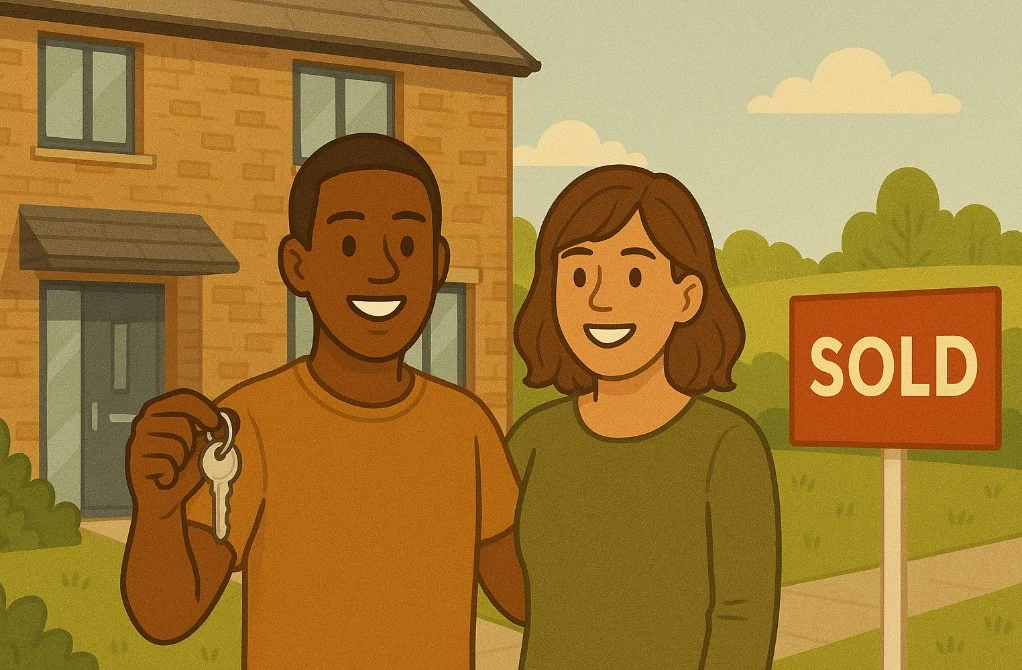Buying a $500,000 home is a major financial step, and knowing how much income you need is crucial. The answer isn’t a single number; it depends on factors like your down payment, interest rate, credit score, existing debt, and more.
While the typical income range needed falls between $125,000 and $170,000 annually, your unique financial situation will define where you stand.
This guide breaks down every element that influences mortgage affordability so you can confidently plan your home-buying journey and make a well-informed decision.
What Does “Affording a Home” Really Mean?

Affording a home goes beyond simply qualifying for a mortgage. It means ensuring your monthly payments fit comfortably within your budget while leaving room for savings, emergency costs, and lifestyle expenses.
Lenders typically use two main metrics to assess affordability. The front-end ratio measures housing costs as a percentage of your gross income, while the back-end ratio considers all debts combined.
- Ideally, housing costs should not exceed 28% of your gross income.
- Total debts, including credit cards, student loans, and car payments, should stay below 36%.
True affordability also includes additional expenses such as property taxes, homeowners insurance, and HOA fees.
By understanding these factors, you’re not just buying a house, you’re securing a home that’s financially sustainable in the long run.
How Does Your Down Payment Impact Income Requirements?
Your down payment significantly affects how much income you’ll need. A larger down payment lowers the loan amount, which in turn reduces your monthly mortgage payment. This can make it easier to qualify with a lower income.
- 20% Down: Avoids PMI, lowers your loan to $400,000
- 10% Down: You’ll need $50,000 upfront, plus you’ll pay PMI
- 5% Down: Requires only $25,000 but increases monthly payments significantly
A higher down payment also improves your loan-to-value (LTV) ratio, helping you qualify for better mortgage rates. It minimizes your long-term interest cost and often eliminates the need for private mortgage insurance (PMI), which can save hundreds of dollars per month.
If you’re planning for a $500,000 home, building up your savings to increase your down payment is one of the most effective ways to reduce the income you’ll need to qualify.
How Much Do Interest Rates Affect Your Monthly Mortgage Payments?

Interest rates play a crucial role in determining your monthly mortgage payments, and by extension, how much income you need.
Even a 1% difference in interest rates can add or subtract hundreds of dollars from your monthly payment. A lower rate means more affordable payments, reducing the minimum income required.
Let’s look at a quick comparison:
| Interest Rate | Estimated Monthly Payment | Annual Income Needed |
| 5.5% | $2,839 | $113,560 |
| 6.5% | $3,160 | $126,400 |
| 7.5% | $3,496 | $139,840 |
- These payments are for a $500,000 loan over 30 years, excluding taxes and insurance
- Higher rates mean higher payments and higher DTI ratios
Locking in a lower interest rate can dramatically increase your borrowing power. Therefore, tracking mortgage rate trends and improving your credit score can help you secure a better rate, and reduce the income required for a $500k house.
Can Discount Points Help Reduce Required Income?
Yes, discount points can help reduce the required income by lowering your interest rate. A discount point usually equals 1% of the loan amount, paid upfront to “buy down” the rate. This reduces your monthly mortgage payment, which improves your debt-to-income ratio and may help you qualify more easily.
For example, on a $500,000 loan, one point costs $5,000 and typically lowers the rate by about 0.25%. While the savings per month might be just over $50, this adds up to thousands of dollars over the life of the loan.
For borrowers on the edge of approval, discount points can provide the boost needed. However, they are most effective if you plan to stay in the home long enough to offset the upfront cost. Using a mortgage calculator can help weigh both options.
How Much Do I Need to Make to Afford a 500k House?

To afford a $500,000 home, your required income usually ranges between $125,000 and $170,000 annually, depending on your financial profile.
Here’s how the variables influence it:
- 20% down with excellent credit: ~$130,000 annual income
- 10% down with moderate debts: ~$145,000
- 5% down with fair credit and some debt: ~$160,000–$170,000
Your debt-to-income (DTI) ratio, interest rate, and whether you’ll pay private mortgage insurance (PMI) all contribute to your final monthly housing cost.
Mortgage lenders often calculate your ability to pay based on a 28% front-end DTI limit, meaning your total housing costs should not exceed 28% of your gross income.
By improving your credit, increasing your down payment, or lowering other debts, you can decrease the income needed to qualify. Getting pre-approved is the best way to determine your personal affordability for a $500k home.
What Credit Score Is Ideal for a $500k Mortgage?
A strong credit score is one of the biggest factors in qualifying for a $500,000 mortgage. It not only affects approval but also the interest rate you receive, which directly impacts your monthly payment and required income.
| Credit Score Range | Mortgage Impact |
| 740+ | Best rates and lowest income requirement |
| 700–739 | Approval is likely, but slightly higher rates |
| 680–699 | Higher monthly costs, a larger down payment may be needed |
| 620–679 | Limited loan options and stricter terms |
| Below 620 | Conventional loans unlikely, FHA or other government-backed options possible |
Improving your credit score before applying can significantly reduce borrowing costs, making homeownership more affordable in the long run.
How Do Loan Types Influence the Income You Need for a $500k House?
Different mortgage types have different requirements, affecting how much income you’ll need. For instance, FHA loans allow higher DTI ratios and lower credit scores, which might enable you to qualify with a lower income. On the other hand, conventional loans often offer better rates but require stronger financials.
| Loan Type | Min Down Payment | DTI Limit | Credit Score Min | PMI Required? |
| Conventional | 5% | 36%–43% | 620+ | Yes, under 20% |
| FHA | 3.5% | Up to 50% | 580+ | Yes (MIP always) |
| VA | 0% | Up to 50% | Varies | No |
| USDA | 0% | 41% | 640+ | Yes |
Choosing the right loan type based on your financial situation can reduce the income needed to qualify for a $500k mortgage.
What Other Costs Should You Consider Besides the Mortgage?

When budgeting for a $500,000 home, don’t overlook the extra costs beyond your mortgage principal and interest. These can significantly affect your monthly obligations and required income.
Some common additional costs include:
- Property Taxes: Varies widely by state and county
- Homeowners Insurance: Depends on location, home size, and coverage
- Private Mortgage Insurance (PMI): Required if your down payment is under 20%
- HOA Fees: Common in condos and planned communities
- Utilities and Maintenance: Electricity, water, and ongoing upkeep
- Closing Costs: Typically 2%–5% of the home’s price, paid upfront
These expenses directly impact your debt-to-income ratio and, therefore, the income you need to qualify. For instance, high HOA fees or property taxes may reduce the loan amount a lender is willing to offer.
It’s important to gather estimates for all these costs before buying, not just the mortgage payment itself. Factoring in these variables ensures you stay financially stable long after closing.
How Can You Improve Affordability Before Applying for a Mortgage?
Improving your affordability can increase your purchasing power without raising your income. Several proactive strategies can help:
- Pay Down Existing Debts: Lowering your DTI ratio allows more of your income to go toward housing
- Boost Your Credit Score: Even a small increase can unlock better interest rates
- Save for a Larger Down Payment: Reduces your loan amount and can eliminate PMI
- Compare Loan Types: Choosing the right mortgage option can expand your approval chances
- Work More Hours or Increase Income: Sustainable boosts in earnings can improve qualification
- Avoid Large New Debts: Hold off on car purchases or new credit cards before applying
- Get Pre-Approved Early: Understand what you qualify for and strengthen your buying position
Small changes like cutting back on spending or refinancing existing loans can improve your financial profile. Partnering with a trusted mortgage advisor early in the process can also guide you to the best options. Smart preparation makes a $500,000 home more attainable.
Conclusion
Affording a $500,000 house isn’t just about income; it’s about optimizing your entire financial profile. From your credit score to your down payment, interest rate, and total debts, each factor plays a key role in shaping your affordability.
By understanding how these pieces fit together, you can confidently determine what income you need and take strategic steps toward homeownership.
Whether you’re just starting or ready to buy, the right preparation ensures you’re financially ready to own a $500k home comfortably and sustainably.
Frequently Asked Questions
What’s the minimum monthly income to afford a $500k mortgage?
You typically need a monthly income between $10,500 and $14,000 depending on your loan terms. This includes down payment, interest rate, and debts.
Does buying in a different state affect the income you need?
Yes, property taxes, insurance costs, and average home prices vary by state, which can impact your required income significantly.
How long should I plan to stay in a $500k home to make it worth it?
Most experts suggest staying at least 5 to 7 years to build equity and offset transaction costs. Longer stays usually offer better returns.
Can first-time buyers qualify for a 500k home?
Yes, many first-time buyers qualify with FHA loans, down payment assistance, or strong credit and savings. Loan programs can help bridge the gap.
What’s the role of closing costs in overall affordability?
Closing costs add upfront expenses of 2% to 5% of the home price. These must be budgeted alongside your down payment.
Should I get pre-approved before shopping for a 500k home?
Yes, pre-approval shows sellers you’re serious and gives you clarity on your loan limits and budget range before house hunting.




